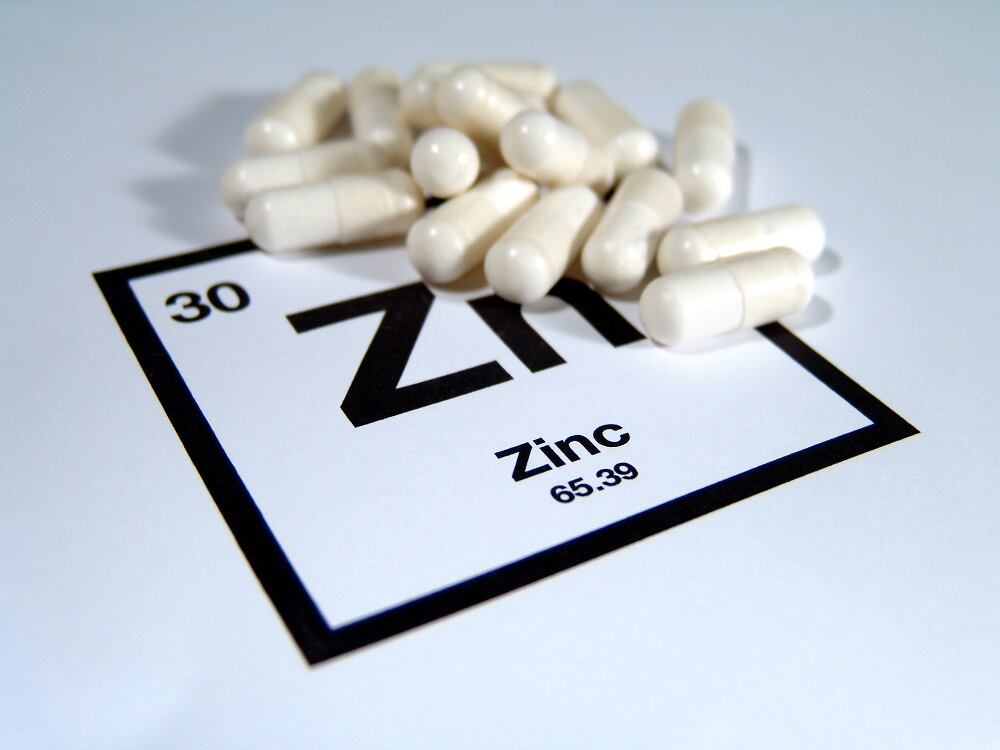The findings are notable as obesity has been linked to cognitive decline and adverse effects on brain health. Zinc is a mineral with important metabolic functions that can modulate obesity-related neurological impairment, wrote the Brazilian researchers behind the study.
Studies have shown that people with obesity have lower serum zinc levels.
“Our findings of cognitive improvement are corroborated by previous studies that have shown neuroprotective properties, anti-inflammatory and antioxidant effects of zinc,” the researchers noted.
They added: “Zinc deficiency in obesity may further contribute to a chronic inflammatory state and increase the susceptibility to related complications. The pro-inflammatory milieu affects the entire body, including the CNS, worsening cognitive and executive functions. It is worth mentioning that obesity is a risk factor for cognitive decline. The imbalance in zinc ion levels appears to play a crucial role in the etiology and progression of neurodegenerative diseases such as Alzheimer’s disease, Parkinson’s, attention deficit hyperactivity disorder (ADHD), as well as psychiatric disorders.”
Improved cognitive performance
The study included 42 women between 40 to 60 years old with BMIs greater than or equal to 25 kg/m2. The women all had six years or more of formal education and did not have significant weight change in the six months before the start of the study. Participants were recruited through local advertisements and social media.
As the survey was carried out during the Covid-19 pandemic, the researchers practiced social distance during data collection. Participants received a salivary collection kit at their residences, a three-day food log, self-reported inventories and a bottle containing either 30 placebo or zinc capsules (30 mg/day for the experimental group) for the first month of the study. Participants received additional capsules after the first month (two bottles, one containing 30 capsules and the other containing 32 capsules).
All participants were instructed to collect the salivary sample after an overnight fast, between 8 a.m. and 10 a.m., two hours after brushing their teeth.
Saliva samples were collected to evaluate proinflammatory cytokines, insulin, nitrite and zinc levels.
After the kit delivery, researchers conducted an online meeting for application of cognitive tests.
The scientists assessed cognitive function using a battery of neurocognitive exams including mini-mental state examination (MMSE), clock drawing test, verbal fluency test (TFV) animal category, Stroop test, Beck depression inventory (BDI-II) and Beck anxiety inventory (BAI).
“Our study demonstrated that a 12-week period of zinc supplementation in overweight or obese adult women led to improved cognitive performance, as indicated by the results obtained from the MMSE and Stroop test,” the researchers wrote. “The protective effect exerted by zinc could be related to its role in various neurobiological processes, including the modulation of neurogenesis, neuronal migration, differentiation, and synaptic transmission, which are directly related to cognitive health. It has been demonstrated that even low doses of zinc, supplemented for four weeks, can reduce neuroinflammation and memory deficits resulting from diet-induced obesity.”
Homeostasis
Zinc plays an essential role in biological processes, including modulation of gene transcription, cell signaling pathways, enzyme activity and regulation of metabolic and brain function, the researchers wrote. Its role in insulin synthesis, storage and secretion is well known, as is its involvement in insulin sensitivity.
“Considering the importance of Zn in a wide variety of physiological processes, its homeostasis in the body is extremely important,” the scientists wrote. “Zinc is regulated by complex mechanisms of absorption, transport and excretion, which aim to keep zinc levels in balance. Deregulations in this homeostasis can lead to deficiencies or excesses of zinc concentrations, both harmful to the central nervous system (CNS) and health.”
However, recent research showed zinc supplementation was able to reverse short-term memory deficits in rats and increase antioxidant and anti-inflammatory capacity in both animals and humans, the researchers noted.
“Obesity exerts detrimental effects on the central nervous system, mediated by inflammatory processes and metabolic and hormonal dysregulations,” the scientists wrote. “It is imperative to underscore that the prevention and management of obesity are pivotal for ameliorating its deleterious impact on cerebral functions. Therefore, the study of zinc supplementation in the context of obesity is highly relevant, given its global prevalence.”
Source: Nutrients
doi: doi.org/10.3390/nu15204396
“Effects of Zinc Supplementation on Inflammatory and Cognitive Parameters in Middle-Aged Women with Overweight or Obesity”
Authors: Liziane da Silva de Vargas et al.



